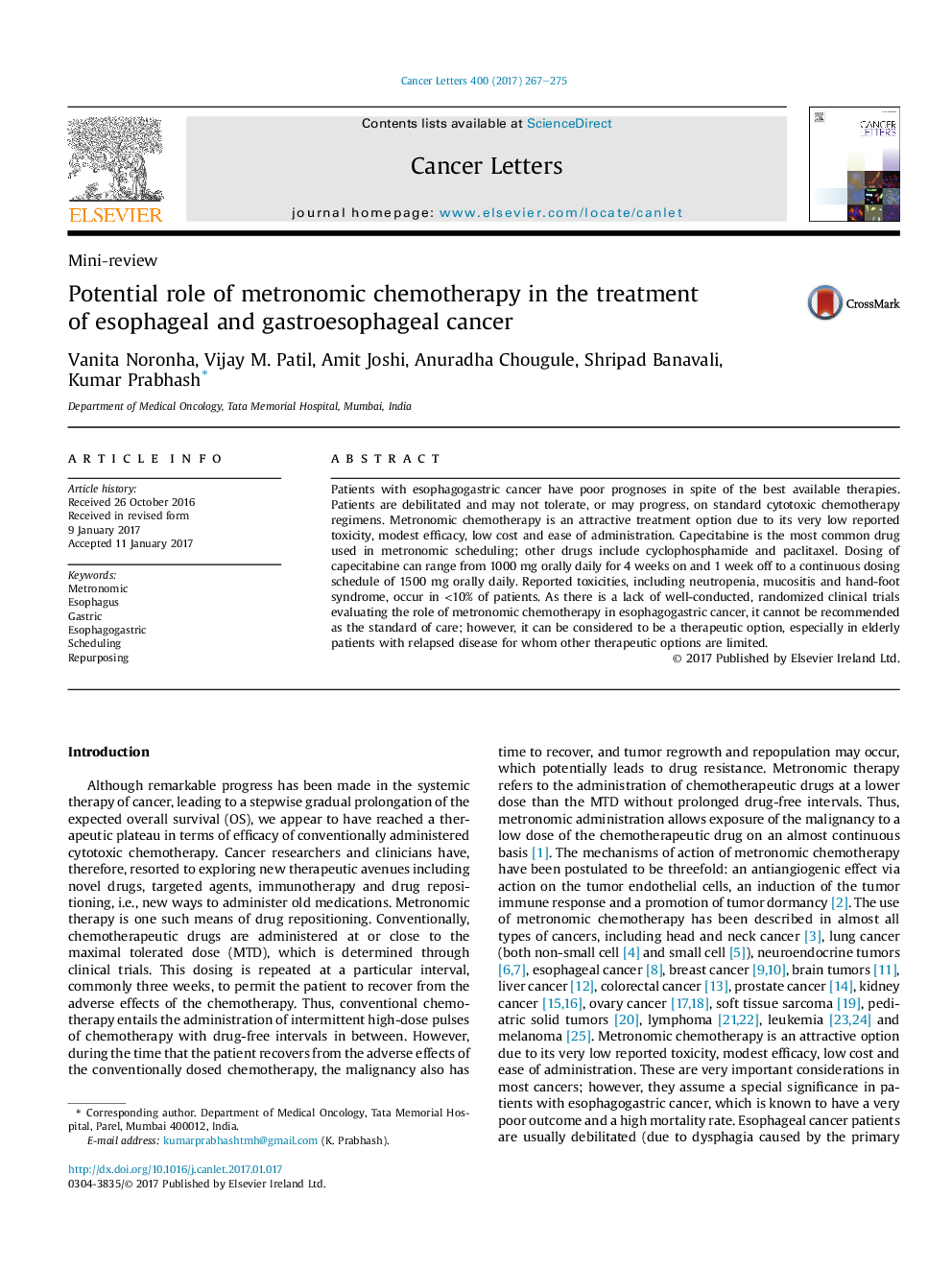| کد مقاله | کد نشریه | سال انتشار | مقاله انگلیسی | نسخه تمام متن |
|---|---|---|---|---|
| 5525529 | 1546669 | 2017 | 9 صفحه PDF | دانلود رایگان |
- Esophagogastric cancer is a systemic disease and has a poor prognosis.
- Metronomic capecitabine and cyclophosphamide are the commonly used drugs.
- Evidence for metronomic chemotherapy is predominantly from case series in the palliative setting.
- In patients with relapsed disease, elderly patients, and patients with comorbidities metronomic therapy is a valid option.
Patients with esophagogastric cancer have poor prognoses in spite of the best available therapies. Patients are debilitated and may not tolerate, or may progress, on standard cytotoxic chemotherapy regimens. Metronomic chemotherapy is an attractive treatment option due to its very low reported toxicity, modest efficacy, low cost and ease of administration. Capecitabine is the most common drug used in metronomic scheduling; other drugs include cyclophosphamide and paclitaxel. Dosing of capecitabine can range from 1000Â mg orally daily for 4 weeks on and 1 week off to a continuous dosing schedule of 1500Â mg orally daily. Reported toxicities, including neutropenia, mucositis and hand-foot syndrome, occur in <10% of patients. As there is a lack of well-conducted, randomized clinical trials evaluating the role of metronomic chemotherapy in esophagogastric cancer, it cannot be recommended as the standard of care; however, it can be considered to be a therapeutic option, especially in elderly patients with relapsed disease for whom other therapeutic options are limited.
Journal: Cancer Letters - Volume 400, 1 August 2017, Pages 267-275
